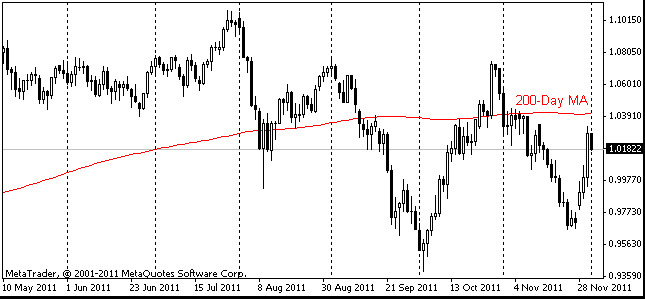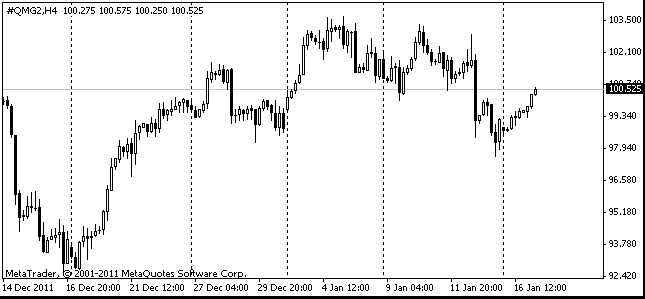EUR/usd
The ongoing concerns around Spain impede an upward bounce in the euro. Yesterday EUR/USD hit a 2yr low, breaking through 1.25 and reaching the level of 1.2457 at some point. Portugal and Spain are still suffering the capital outflow. The yield spread between these countries' 10yr bonds and German Bunds exceeds 1000bp for Portugal and 500bp for Spain. The German stocks cost more than their American counterparts (i.e. their yield is lower). This current state of affairs should hardly be attributed to investors' confidence in the higher growth in Germany against the USA, but can be rather explained by the fact that the funds tend to withdraw their assets from the troubled countries, yet keeping them in the euro. It takes time to convert money into another currency, you know. Moreover, the euro is obviously oversold, so apparently the players will want to wait for a while to sell the euro on the bounce. Our supposition is also based on the fact that the American stock indexes keep appreciating. The drop of the euro and growth of the American stocks clearly show that the capitals deliberately flow to America which can supply much more assets of the proper quality. However, we should understand that the abnormally low yield of the German Bunds is connected with a huge volume of liquidity, which is now just waiting for its turn to quit the euro-zone. The German debt market, even when joined by the corresponding markets in the Netherlands and Scandinavian countries, simply doesn't have such a great number of high-quality assets to satisfy the existing investor demand. Under such circumstances the market of joint Eurobonds would be of help, creating additional supply of reliable assets. However, on the other hand this idea entails subprime CDO. The world has paid a stiff price to learn this lesson. Probably, there is some sense in creating a kind of “subprime Eurobonds” which would generate money for weak European countries and have a corresponding medium rating. Their yield will be higher than that of the EU-wide bonds, but lower than the current yield of Greek, Spanish and Portuguese bonds taken separately. Besides, the yield of such bonds would be less volatile.

GBP/USD
The troubles of the euro don't let the sterling grow or even consolidate at the same level. It can be explained not only by the correlation of the European currencies against the dollar or yen, but also by the fact that the Spanish banking sector issues put a heavy burden on Britain. The British banks are responsible for about 60% of the capital in the Spanish banks, much more than any other European country. The British government is gradually recouping the money it spent to bail out their domestic banks on the collapse of home lending, but it will hardly want to save the banks, suffering from another country's troubles. Anyway, till there is no certainty around the European banking sector, the British pound will be suffering.

AUD/USD
Apart from the pressure the aussie faced on concerns around the euro zone, the Australian domestic news doesn't sound very optimistic for the bulls either. Today's news has shown a 0.2% decline in the retail sales for March and a sharp drop in the annual rate of the indicator – 1.0% against 4.7% last year. Despite another fall below 0.98 in the Aussie earlier today, the pair isn't hitting new lows, as is done by the euro now. Since the beginning of the week the Aussie has been somewhere in the middle between high-beta currencies and stock indexes in its dynamics.

oil
The mounting concerns around Europe impeded the so much wanted correction of oil prices. Earlier today the black oil again sank below $91 per WTI barrel. The fomc member Plosser has given an interesting commentary concerning this. In his opinion, there is nothing bad about the current situation in Europe, as it doesn't tell on the US growth in any way and the cut in energy prices, on the contrary, contributes to it. Still Obama has sent one of his chief economists to Europe, fearing the impact the European crisis may produce on the States. Well, who is right here, Obama or Plosser?
